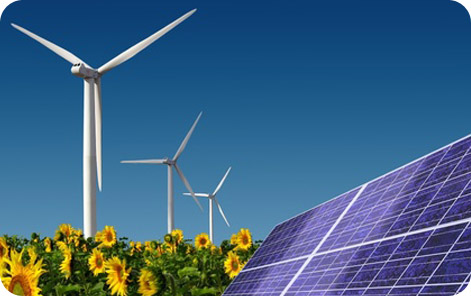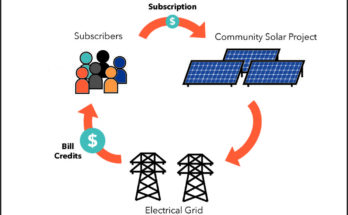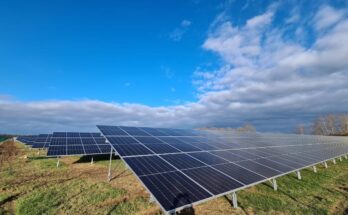The buzz in the green community has long included renewable and sustainable energy sources. More directly, the talk has centered on what energy source will be sustainable in the long term. The demand for green energy has been front and center in recent years as a changing world has caused a reevaluation of pollution and previous years dirty manufacturing processes. Current energy production methods cause pollutants and greenhouse gasses that are contributing to a changing world; converting energy production to greener practices will help to offset, and in all hopes repair, some of the damages that have been caused.
Types of Green Energy
Renewable and sustainable energy takes many forms, such as:
- Solar
- Hydropower
- Bioenergy
- Hydrogen and fuel cells
Solar
Solar energy is derived from the sun. The suns energy is collected using photovoltaic panels, which in turn convert it into usable energy. Solar is the cleanest energy as it does not create any waste in the production of energy; however, photovoltaic panels in their current incarnation are not efficient as singular entities. Good news though, science is working toward creating more efficient panels and hopefully more cost effective as well. Solar panels are costly from an initial purchase standpoint and then it is compounded with the required regular maintenance due to the panel’s fragile construction. We (hopefully) will never run out of sun, so it would seem that solar is a viable and sustainable option…unless of course an Indonesian volcano explodes and its ash blocks out the sun. True story!
Hydropower
Hydropower means that energy is gathered from the movement of water. Sometimes Hydroelectric dams are used, much like those in Washington, US and Niagara Falls, Canada. Technology has grown and developed so that it is now possible to harness the energy created by tidal movements. Hydropower is touted as being one of the cleanest energy producers. This is not without its problems though. Hydropower dams alter the nitrogen and oxygen content of the water. This can cause issues for aquatic life.
Bioenergy
Bioenergy is the power that can be gathered from any biomass that converts sunlight and stores it as power in its cells. Some of these substances are; bi-products of the farming and agricultural industry, wood, corn and sugar cane. Those are only a few of the items that can be synthesized into biofuels; there are many more. Bioenergy still requires a significant ecological impact. The crops that are grown strip nutrients from the land and forest are cleared in order to accommodate more farming. There is also the problem of how much pollution is caused by the equipment required to plant, spray, harvest, and transport dedicated biofuels crops.
Also Read : 4 Simple Ideas to Save Energy At Home
Hydrogen and Fuel Cells
Believe it or not, fuel cells have been put into use by NASA in order to power probes and satellites during space exploration and the first fuel cell was created in 1839. This shows that fuel cell technology has gotten to a point where it is a reliable and viable option.
Wind Energy
You may have seen a wind farm before, fields of giant turbines slowly spinning. They seem to be popping up all over the place currently. The problem with wind power, or at least the current methods of collecting it, is the impact that it has on its surroundings. Many people who live near wind farms have complained of constant headaches due to the almost inaudible, but constant hum given off by the turbines.
The clear winner at this moment in time is solar, as advancements are made that could change. Solar, in order to be fully embraced, needs to be more accessible for homeowners…maybe some incentives given out by cities, townships or municipalities are in order. The other renewable energy options are still good and it would be in the best interest of everyone to have more than one clean energy source. That being said, the energy sources need to stay sustainable and need to have little, or preferably no, affect nature or our natural resources.




